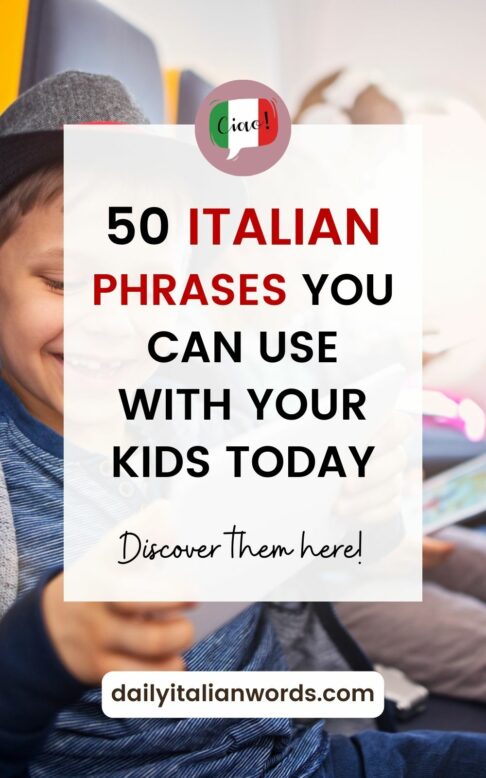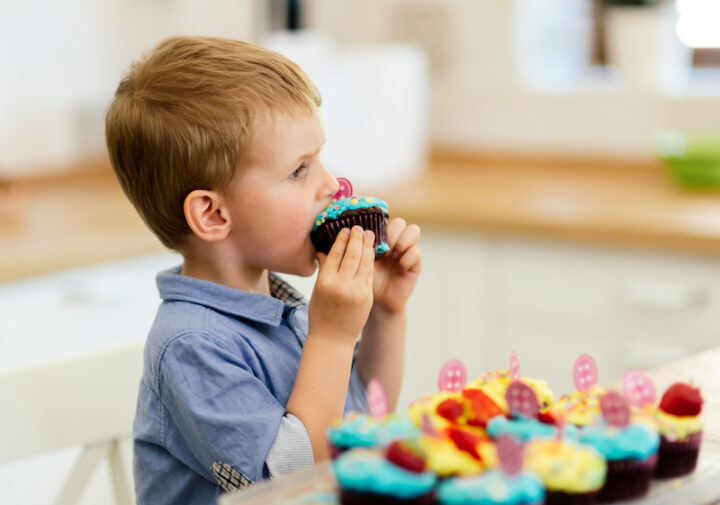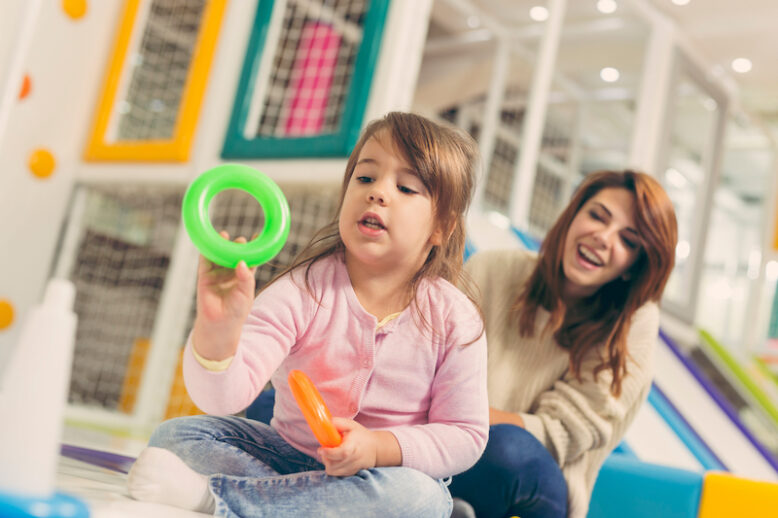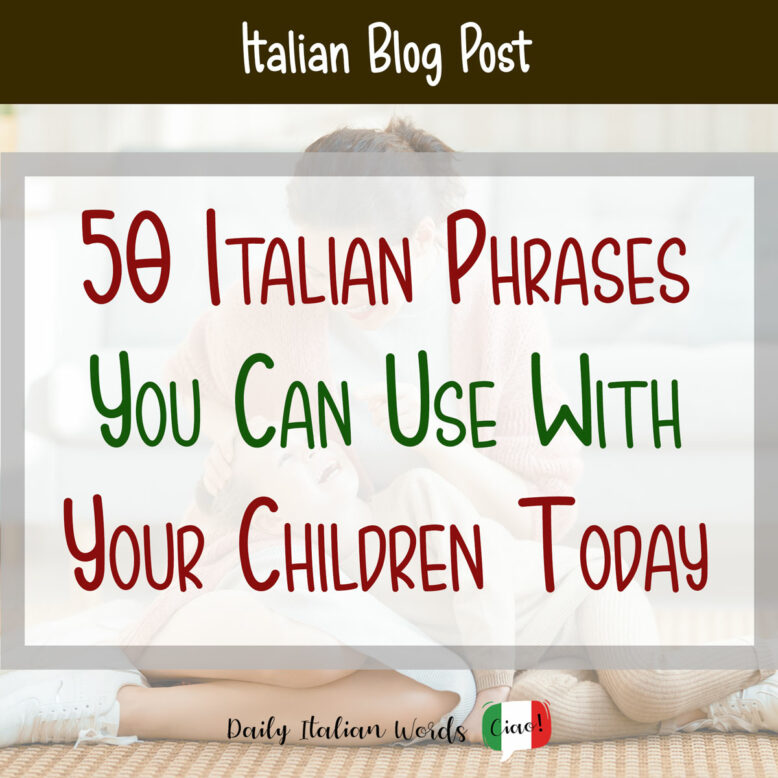Since the day my son was born, I’ve been speaking to him in Italian, despite not being a native speaker of the language. Now that he is three (going on thirteen), I’ve become extremely familiar with the phrases we often repeat to children, whether we intend to or not!
In this article, you will find fifty phrases that you can immediately use with your children (or grandchildren) if you intend to begin introducing them to the Italian language. I hope you find them helpful!
Note: Throughout the article, I’ve employed the second person singular (tu) and the masculine gender endings (-o) to streamline the content. Naturally, you have the possibility to substitute tu with the plural voi and adjust the masculine endings to their corresponding feminine forms (-a) as needed.

10 Italian Phrases: In the morning
Here are a few set phrases Italian parents always use when their children first wake up in the morning. Within this collection, you’ll find a range of sentiments – from warm greetings and affectionate phrases that convey love and care, to playful encouragements that nudge kids into action.
Buongiorno, amore mio!
Good morning, sweetheart!
Hai dormito bene?
Did you sleep well?
È ora di alzarci. Dobbiamo prepararci per…
It’s time to get up. We need to get ready for…
Vieni qui che ti do un bacio/abbraccio.
Come here so I can give you a kiss/hug.
Hai fame? Facciamo colazione, dai.
Are you hungry? Come on, let’s go have breakfast.
Ti scappa la pipì?
Do you need to pee?
Vestiamoci e andiamo giù.
Let’s get dressed and go downstairs.
È troppo presto. Dormiamo ancora una mezz’ora.
It’s too early. Let’s sleep another half an hour.
Che sbadiglio, hai ancora sonno? Vieni qui che ti prendo in braccio.
What a yawn, are you still sleepy? Come here and I’ll pick you up.
Svegliati, è tardi! Sono già le sette!
Wake up, it’s late! It’s already seven o’clock!

10 Italian Phrases: At the table
Here we have a collection of phrases you will often hear at the breakfast, lunch or dinner table when kids are around.
La pasta è pronta. A tavola!
The pasta is ready. Come to the table!
Ti sei lavato le mani? Sono tutte sporche!
Did you wash your hands? They’re all dirty!
È un po’ caldo/a. Vuoi che soffi?
It’s a bit hot. Do you want me to blow on it?
Mangia bene / siediti bene, per favore.
Eat / sit properly, please.
Se mangi cinque broccoli, ti darò poi un biscotto.
If you eat five pieces of broccoli, I’ll give you a biscuit.
Ti piace? È buono/a?
Do you like it? Is it good?
Usa la forchetta / il cucchiaio, come un grande.
Use your fork / spoon, like a big kid.
Ne vuoi ancora? Ok, qual è la parola magica?
Do you want some more? Ok, what’s the magic word?
Basta così? Non hai più fame?
Have you had enough? You aren’t hungry anymore?
Fammi lavarti la faccia / le mani prima che scenda. Sei tutto coperto di…!
Let me wash your face / hands before you get down. You’re all covered in…!

10 Italian Phrases: Playtime
During moments of play with your child, certain phrases tend to crop up over and over again, regardless of the specific game at hand.
Vuoi giocare a…?
Do you want to play…?
A chi tocca? Ok, tocca a te.
Whose turn is it? Ok, it’s your turn.
Possiamo giocare dieci minuti e poi devo…
We can play for ten minutes but then I have to…
Facciamo finta che siamo…
Let’s pretend that we are…
Sei stufo? Cambiamo gioco.
Are you fed up (with this game)? Let’s play a different game.
Bisogna condividere i giocattoli.
We have to share our toys.
Se vuoi fare un altro gioco, prima dobbiamo mettere via questo.
If you want to play another game, we need to put this one away first.
È ora di mettere a posto. Dove vanno questi giocattoli?
It’s time to clean up. Where do these toys go?
Calmati un po’, ti stai agitando troppo.
Calm down, you’re getting overexcited.
Possiamo giocarci domani se vuoi.
We can play (this game) tomorrow if you want.

10 Italian Phrases: Spending time outdoors
When we’re outdoors with our children, our priority is their enjoyment and safety, and these Italian phrases reflect those intentions.
Dammi la manina quando attraversiamo la strada.
Hold my hand when we cross the street.
Stai vicino alla mamma. Non ti allontanare troppo.
Stay close to mommy. Don’t go too far.
Ti sei fatto male? Dove? Adesso ti passa la bua.
Did you hurt yourself? Where? It will feel better soon.
Vuoi andare al parco? Possiamo andare sull’altalena e sullo scivolo.
Do you want to go to the park? We can go on the swing and the slide.
Corri verso la mamma, dai! Ma come sei veloce!
Come on, run towards mommy! Look how fast you are!
Vai a giocare un po’ da solo. La mamma ti aspetta qui.
Go and play by yourself for a while. Mommy will wait for you here.
Ancora cinque minuti e poi dobbiamo tornare a casa, va bene?
Five more minutes and then we have to go home, ok?
Siamo quasi arrivati.
We’re almost there.
Vuoi che ti porti in braccio o vuoi camminare?
Do you want me to carry you or do you want to walk?
Sei stanco, eh? Che ne dici di stare un po’ nel passeggino?
You’re tired, aren’t you? How about going in the stroller for a bit.

10 Italian Phrases: Bedtime routine
At bedtime, our focus is on the nighttime routine, encompassing activities such as brushing their teeth and the indispensable bedtime story.
È ora di fare la nanna, amore.
It’s time for bed, sweetheart.
So che non vuoi andare a dormire ma è tardi.
I know you don’t want to go to bed but it’s late.
Dobbiamo svegliarci presto domani mattina.
We have to get up early tomorrow morning.
Vuoi il bacio della buonanotte?
Do you want a goodnight kiss?
Ecco il tuo doudou. Se lo coccoli, non avrai paura del buio.
Here’s your plushie. Cuddle him and you won’t be scared of the dark.
Fai la pipì e lavati i dentini.
Go pee and brush your teeth.
Leggiamo una storia della buona notte.
Let’s read a bedtime story.
Mettiamo il pigiamino. Riesci a vestirti da solo?
Let’s put on our pyjamas. Can you dress yourself?
Starò con te finché non ti addormenti.
I’ll stay with you until you fall asleep.
Buonanotte, tesoro. Sogni d’oro.
Goodnight, sweetheart. Sweet dreams.

Now that you’re armed with these useful Italian phrases, why not have a go at using them with your kids? In bocca al lupo! Good luck!

Heather Broster is a graduate with honours in linguistics from the University of Western Ontario. She is an aspiring polyglot, proficient in English and Italian, as well as Japanese, Welsh, and French to varying degrees of fluency. Originally from Toronto, Heather has resided in various countries, notably Italy for a period of six years. Her primary focus lies in the fields of language acquisition, education, and bilingual instruction.


